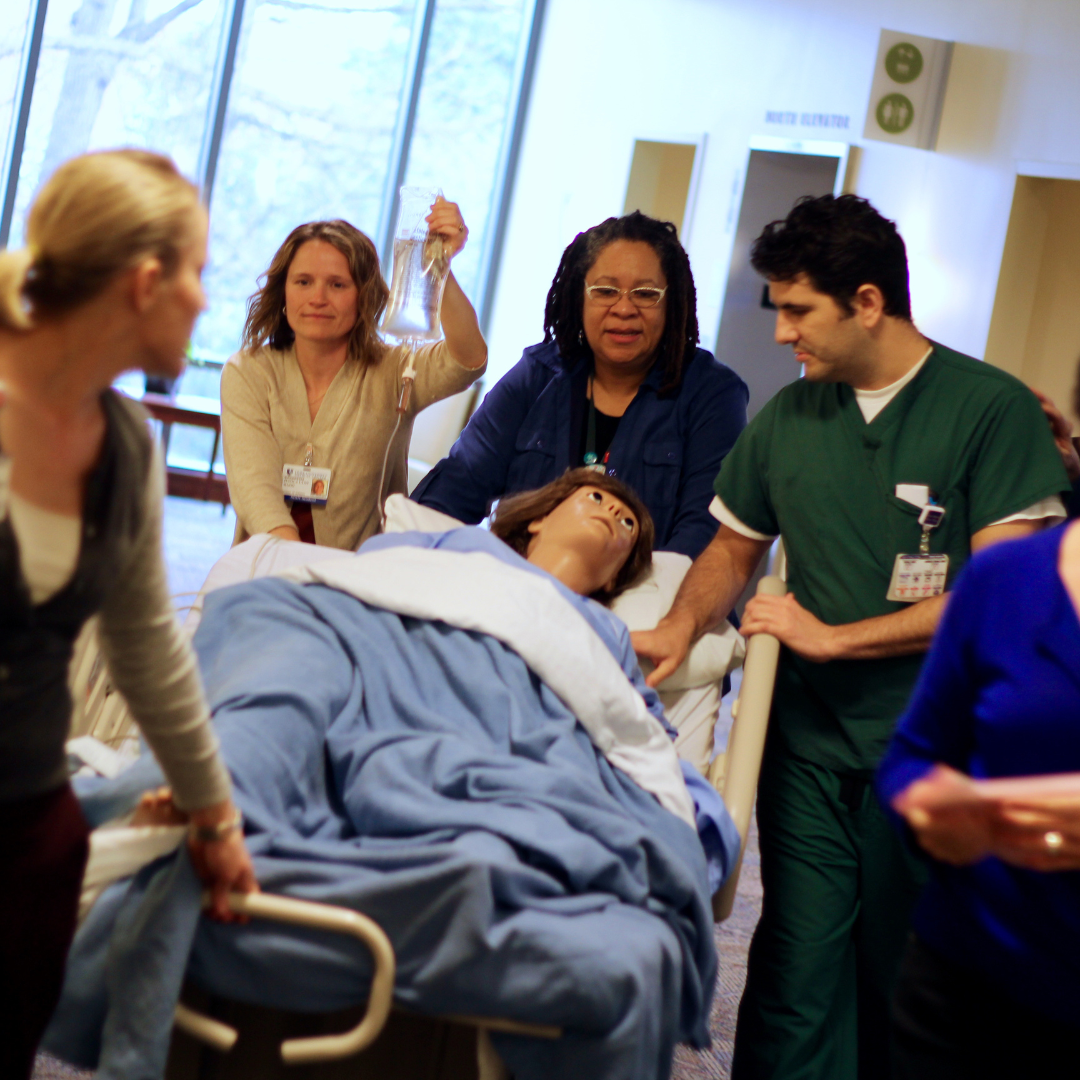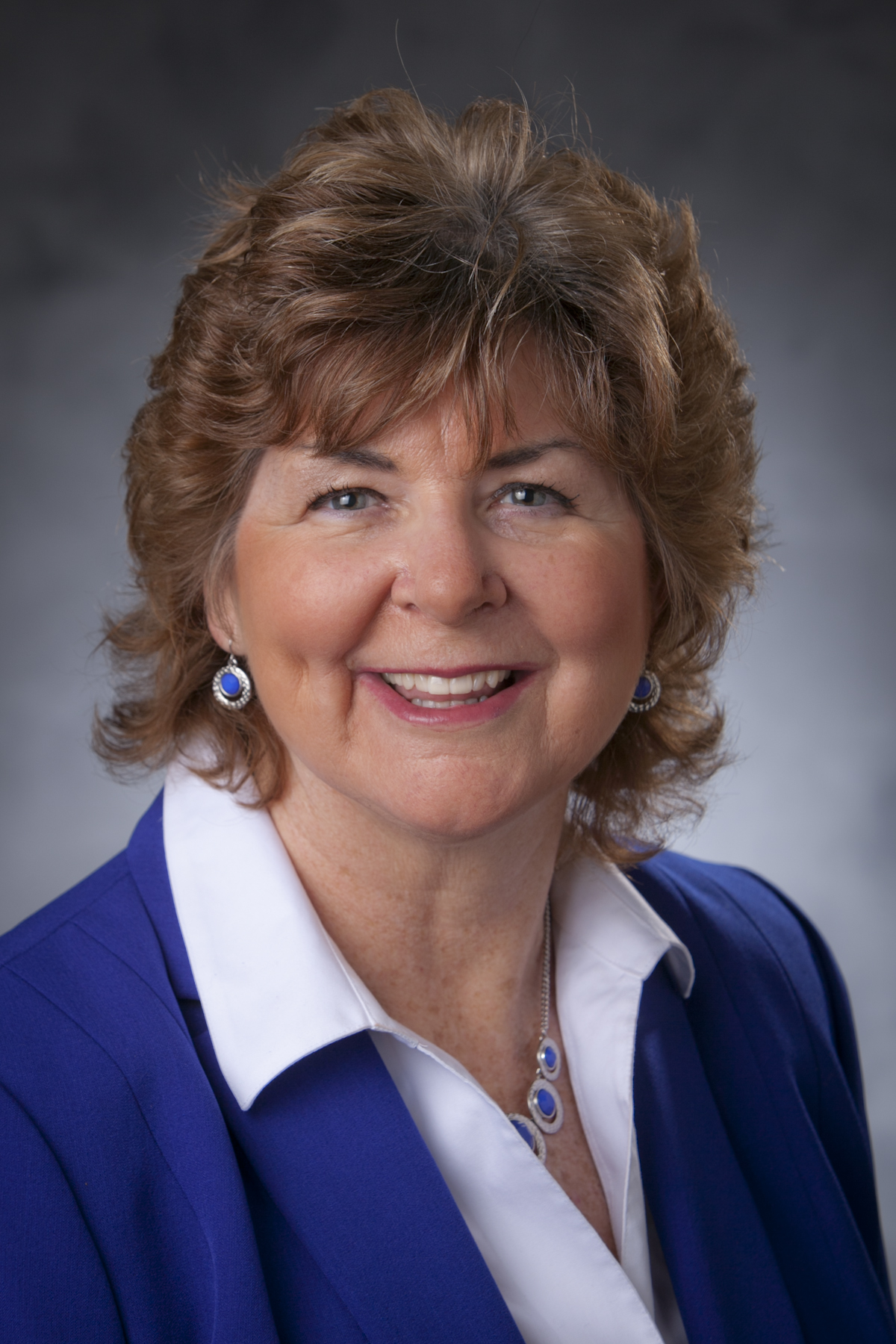Faculty Use Simulation to Confront Racism, Bias in Health Education Programs
Faculty Margie Molloy and Nikki Blodgett led a faculty grant team to create a series of faculty development sessions that used trigger films to help speak up against systemic racism and bias in the classroom and clinical sites.

Creating a safe space for health professions students to learn is a core value of Duke University. When racism and bias exist in the classroom or clinical setting, it has an impact on educational outcomes and health inequities.
To address this issue, co-lead Margie Molloy, DNP, RN, CNE, CHSE, associate professor and assistant director of the Center for Interprofessional Education and Care (IPEC) Center, and collaborator Nicole Blodgett, PhD, RN, CHSE, assistant professor and director of the Center for Nursing Discovery (CND), were part of a team that designed and implemented the year-long project, “Confronting Racism and Bias in Health Education Programs Using Trigger Films.” This virtual faculty development project was funded by the 2021 Duke Faculty Advancement Seed Grant. Other team members include former School of Nursing faculty Angela Richard-Eaglin, Valerie Howard, and Beth Phillips and Duke School of Medicine faculty Kathryn Andolsek and Andrew Spector.
“How can you mitigate this bias?” Molloy said. “Gain exposure to counter-stereotypical examples. Improve self-awareness about what you’re saying, and then, most importantly, name the issue.”
The simulation experience was developed using INACSL Healthcare Simulation Standards of Best Practices™. Trigger films, short, pre-recorded videos used to incite an emotional response, were developed based on real-life events portrayed by actors. The project team, including trained cultural intelligence (CQ) facilitator Richard-Eaglin, developed the scripts; CQ is a method that assesses and improves effectiveness in culturally diverse situations. The team combined techniques from CQ literature and simulation pedagogy and collaborated with actors from Theater Delta to produce six scenarios: Theater Delta is an acting troupe based in Durham that uses interactive theater to foster dialogue and implement strategies for social change.
“We are trying to take what we know works in simulation—a shared experience and a safe place to learn and talk about ways to improve,” Blodgett said, noting that many bias awareness training classes only offer reading and discussion. The addition of the trigger films makes the training experiential, initiating emotional responses and reflection in the participants. “That’s what makes it so unique.”
Over the period of a year, the team conducted nine three-hour live virtual sessions where up to 12 participants and two facilitators watched the films together then participated in discussions about them. After the discussion, participants received a “content burst”—a review of facts and statistics pertinent to the presented scenario. A total of 76 health professions educators volunteered to participate, including Duke educators from nursing, medicine, physical therapy, psychiatry, basic science, biomedical science, family medicine, social work, and quality and patient safety.
After the short videos were shown to participants, they were asked to describe what they had just seen. Words like “shocking,” “appalling,” and “sad” were used to describe their immediate feelings after watching the short scenarios.
To guide participants, the team created a toolkit and manual to standardize training sessions. They also authored an article, “Developing Virtual Simulations to Confront Racism and Bias in Health Professions Education,” that was published in the May 2022 issue of Clinical Simulation in Nursing.
Since the end of the grant period, Molloy and Blodgett have presented the project at different venues in this past spring and summer, hoping to inspire other educators to create similar training sessions. They are working to package the toolkit, films, content bursts, debriefing guide, and glossary of terms for future sessions at the School of Nursing and to other Duke entities.
“Simulation is a very powerful tool to teach,” Blodgett said. “With that power comes a great responsibility to ensure that it is done well. Viewing trigger films needs to occur in a safe learning environment and having highly trained facilitators is a vital part of the faculty development simulation.”
Because of how realistic simulation can feel, faculty and researchers need to be mindful of the impact it can have on the participants. That said, Molloy and Blodgett are excited about others using their project as a starting point and are in the process of adapting the material for external use. Beyond just teaching faculty how to identify bias and intervene, they hope these concepts will impact students too.
“We’re hoping that if the faculty are using some of these techniques and word choices in the classroom, the students will learn those items too, and feel empowered to speak up when they see racism and bias occur,” Blodgett said.

